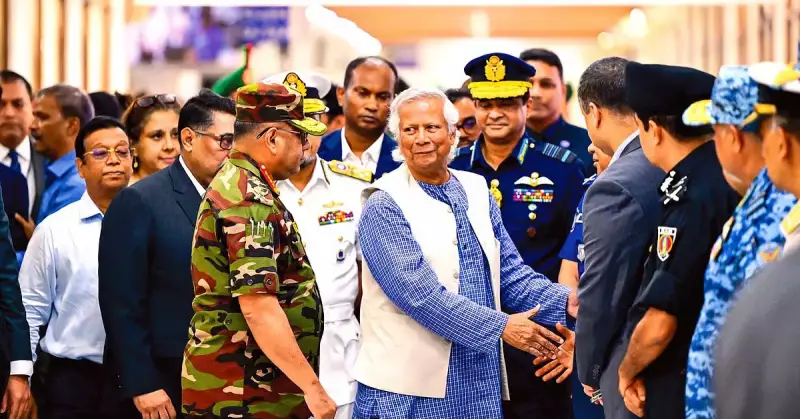
The political landscape in Bangladesh has intensified dramatically as the interim government led by Nobel laureate Muhammad Yunus faces unprecedented criticism from both major political parties. With national elections scheduled for 2026, the country stands at a critical juncture that could determine its democratic future.
Political Parties Launch Coordinated Attacks
In a rare show of unity, both the Awami League and Bangladesh Nationalist Party (BNP) have launched scathing attacks on Yunus's leadership. The Awami League has characterized his administration as a "return to criminal rule," while the BNP describes it as "too weak to govern effectively." These accusations come despite the parties' traditional political rivalry.
Former ministers from both camps have expressed grave concerns about the current situation. They warn that Yunus's policy decisions and appointments have inadvertently empowered lawlessness across the country while deepening existing political divisions. The criticism emerged publicly on November 11, 2025, marking a significant escalation in political tensions.
Election Violence Fears Mount
As the 2026 general elections approach, security experts and political analysts are growing increasingly concerned about the potential for widespread violence. The fragile political environment, combined with heightened rhetoric from all sides, creates conditions ripe for conflict.
Several former government officials have privately expressed worries that the current administration's approach to law enforcement and political reconciliation might be insufficient to prevent election-related violence. The situation is particularly delicate given Bangladesh's history of political unrest during election periods.
Military's Role Becomes Crucial Factor
Amid the growing political storm, both major parties view the Bangladesh military's position as potentially decisive. There appears to be cautious optimism among political leaders about the army's continued neutrality and its ability to maintain control if violence erupts.
The military's traditional role in Bangladeshi politics adds complexity to the current crisis. Many observers believe that the armed forces' commitment to remaining apolitical could be the key factor in ensuring peaceful elections next year.
International attention has focused on what many are calling "Yunus's moral experiment" in governance. The Nobel Peace Prize winner's transition from microfinance pioneer to political leader faces its most severe test yet as he navigates between competing political forces while maintaining public order.
The world watches closely as Bangladesh approaches this crucial electoral period, with many hoping that the country can avoid the violence that has marred previous elections and maintain its democratic progress.





